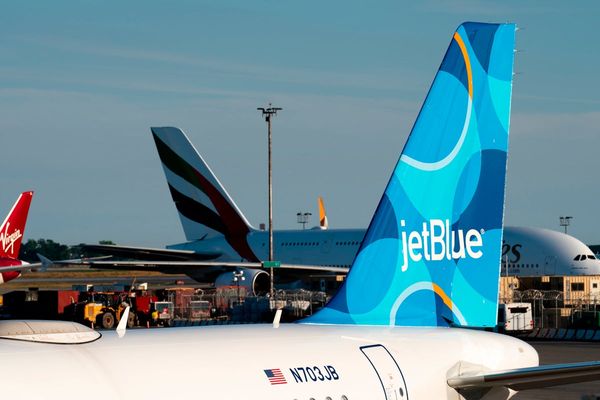Swiss drugmaker Roche said Monday it has agreed to buy an experimental immunology drug from Roivant Sciences and Pfizer for $7.1 billion. But ROIV stock pared back early gains.
The drug blocks a ligand associated with inflammation called TL1A. It's in testing to treat ulcerative colitis and Crohn's disease.
Roche is the third big-name drugmaker to get into the TL1A space since April when Merck announced its $10.8 billion acquisition of Prometheus Bio. This month, Sanofi inked a deal worth up to $1.5 billion to codevelop Teva Pharmaceutical's TL1A drug.
For Roche, the acquisition is a full circle moment after rumors emerged in July that it could buy the stomach-disease treatment from Roivant for about $7 billion.
"We strongly believe this novel TL1A-directed antibody has the transformational potential to make a significant difference for patients living with inflammatory bowel disease and potentially other diseases," Roche Chief Executive Thomas Schinecker said in a statement.
On today's stock market, ROIV stock toppled 11% to 8.60. In premarket trades, shares rose more than 8%. Pfizer shares advanced 0.6% to 30.84. Roche stock dipped a fraction to 33.10.
ROIV Stock: A Promising New Drug Class
Roivant Chief Executive Matt Gline says the TL1A drug class looks promising for patients with these stomach diseases that don't respond to popular anti-inflammatory treatments from AbbVie and Johnson & Johnson.
These drugs cut off inflammation earlier in the process. But that's using "a big hammer for a sharp nail," he told Investor's Business Daily in April.
"The problem is because you're going after the top of that cascade, you wind up disrupting inflammation in a pretty wide variety of contexts, not necessarily just in the context you care about," he said. "So, these drugs have side effects."
That includes suppressing the immune system. In fact, AbbVie's biggest anti-inflammatory treatment, Humira, carries a black box warning noting the risk for infection. This is why Gline advocates for using a targeted approach like TL1A. Targeting TL1A impacts cells that cause inflammation and scarring known as fibrosis.
"Unlike other ones that are interrupting inflammation at the start, this is really going after areas where there's already concentrated inflammation so you can be reasonably confident that most of the time you're impacting diseased tissue as opposed to just blocking an intentional immune response," he said.
ROIV stock, though, remains under pressure. Shares are sitting on a floor at their 200-day moving average, according to MarketSmith.com. Roivant stock has a promising IBD Digital Relative Strength Rating of 94, however. This puts it in the top 6% of all stocks in terms of 12-month performance.
'Transformative Transaction'
In midstage testing of patients with moderate to severe ulcerative colitis, 36% of patients reached clinical remission after 56 weeks of treatment. That means all signs of their disease disappeared. Further, half of the test group showed endoscopic improvement, meaning markers of the disease measured by an internal examine called an endoscopy improved.
"Given this promising data, we believe that RVT-3101 has the potential to be the first therapy that offers both high (effectiveness) and safety for people with inflammatory bowel disease and the convenience of an at-home, subcutaneous administration," Roche's Chief Medical Officer Levi Garraway said in a written statement.
The companies expect the deal to close in this quarter or the next.
Leerink Partners analyst David Risinger says this is a "transformative transaction." He reiterated his outperform rating on ROIV stock.
Follow Allison Gatlin on X, the platform formerly known as Twitter, at @IBD_AGatlin.







